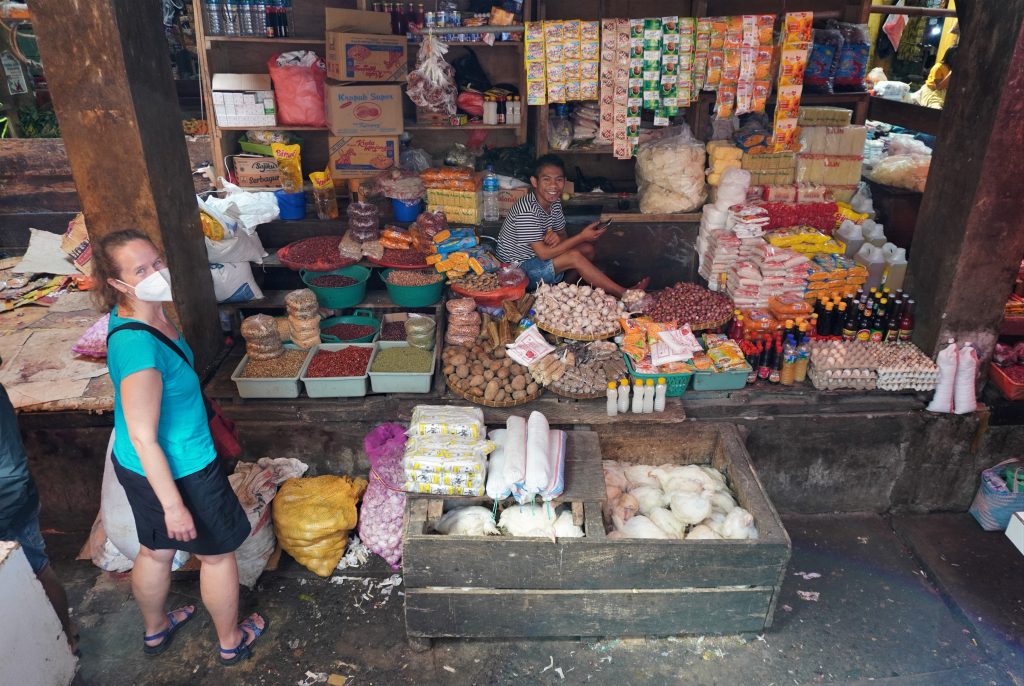
In every city in Indonesia you can find traditional markets. During our Flores trip, our driver, Aristo, took us to one in Ruteng. Although it’s the administrative capitol of Manggarai Regency, Ruteng is not very large, so the market was pretty compact. Still, there’s always a lot to see!
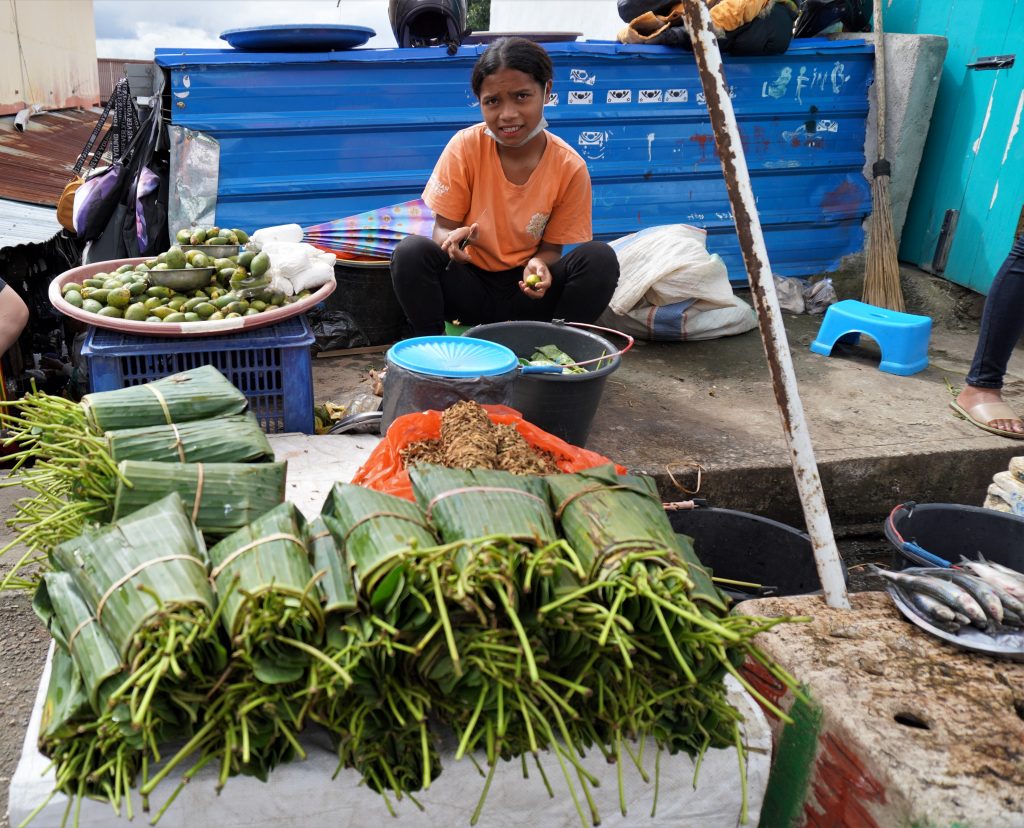
Just outside the market vendors sell betel leaves, betel nuts, tobacco, and ground limestone. Aristo told us it is generally women who chew betel nut. They chew it with limestone, which reminded us of the indigenous people in Colombia who chew coca leaves with calcium carbonate. Betel is supposed to have some kind of health benefit particularly for women. Sure enough, we saw mostly older women all over Flores with the characteristic red lips you get when you chew it.
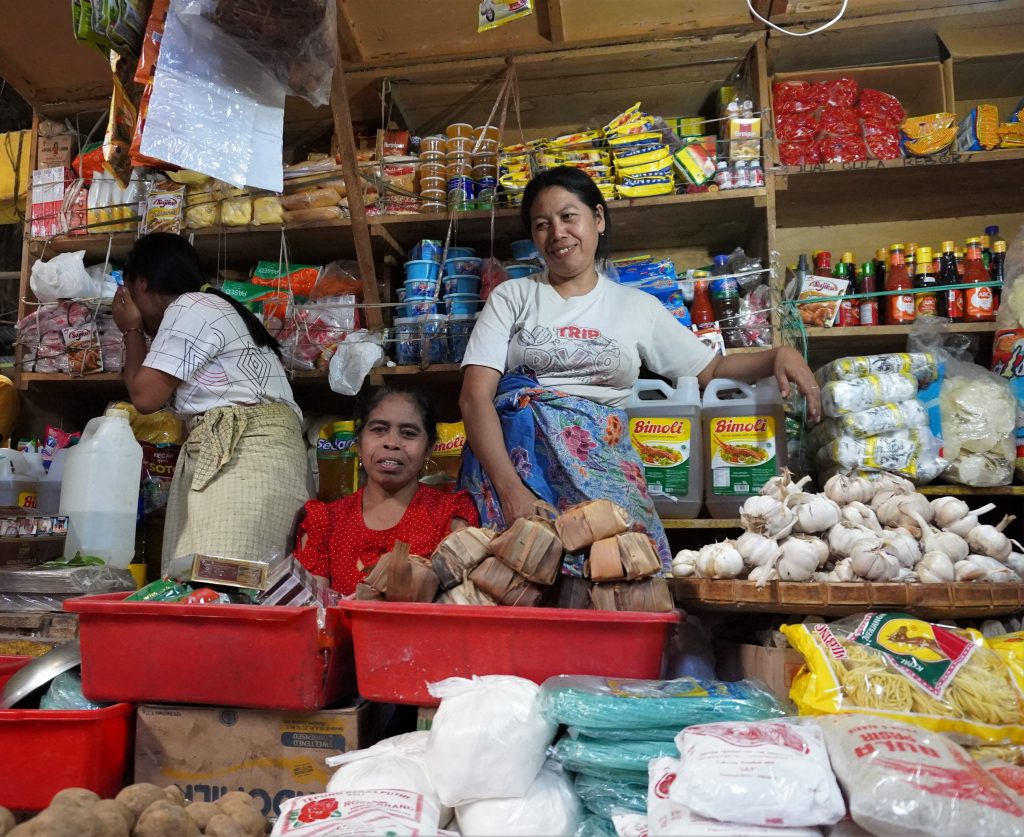
The people of the market were welcoming, and like everywhere in Indonesia were keen to try out whatever English phrases they knew. We’ve also found that Indonesians like to have their photo taken, and sometimes request it.
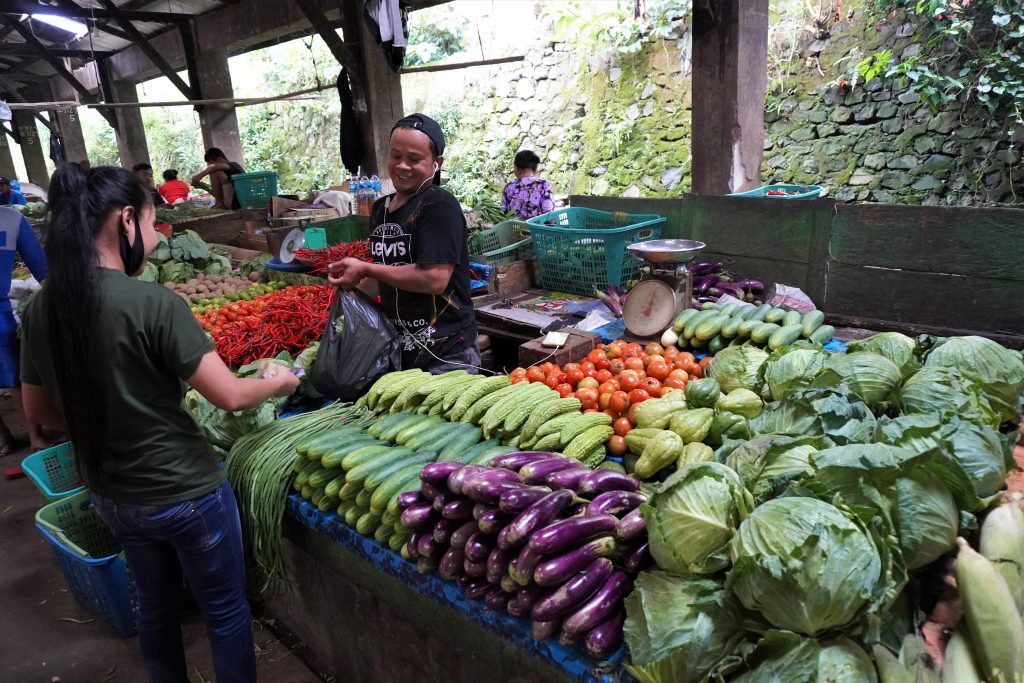
Of course, there were beautiful displays of vegetables. I especially love all the colorful chilies.
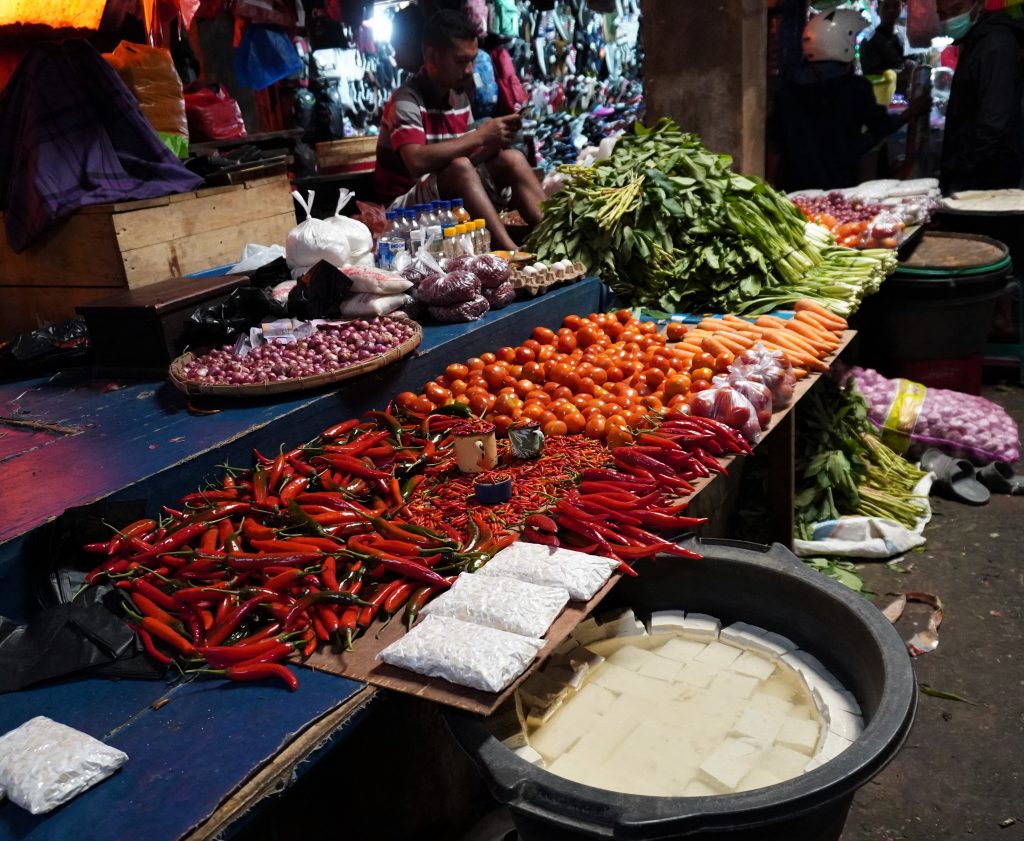
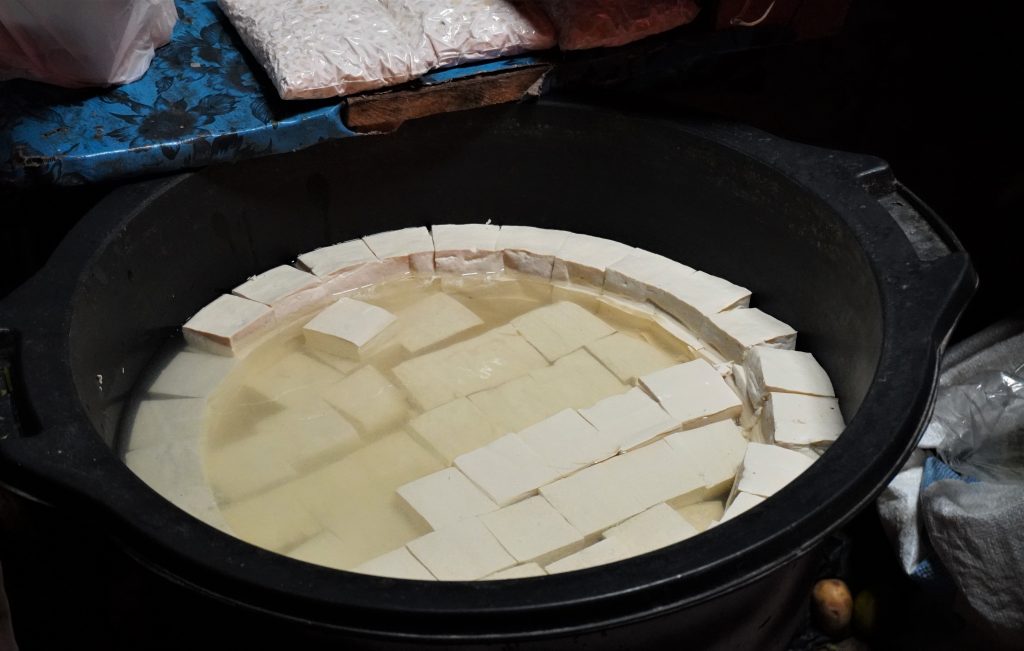
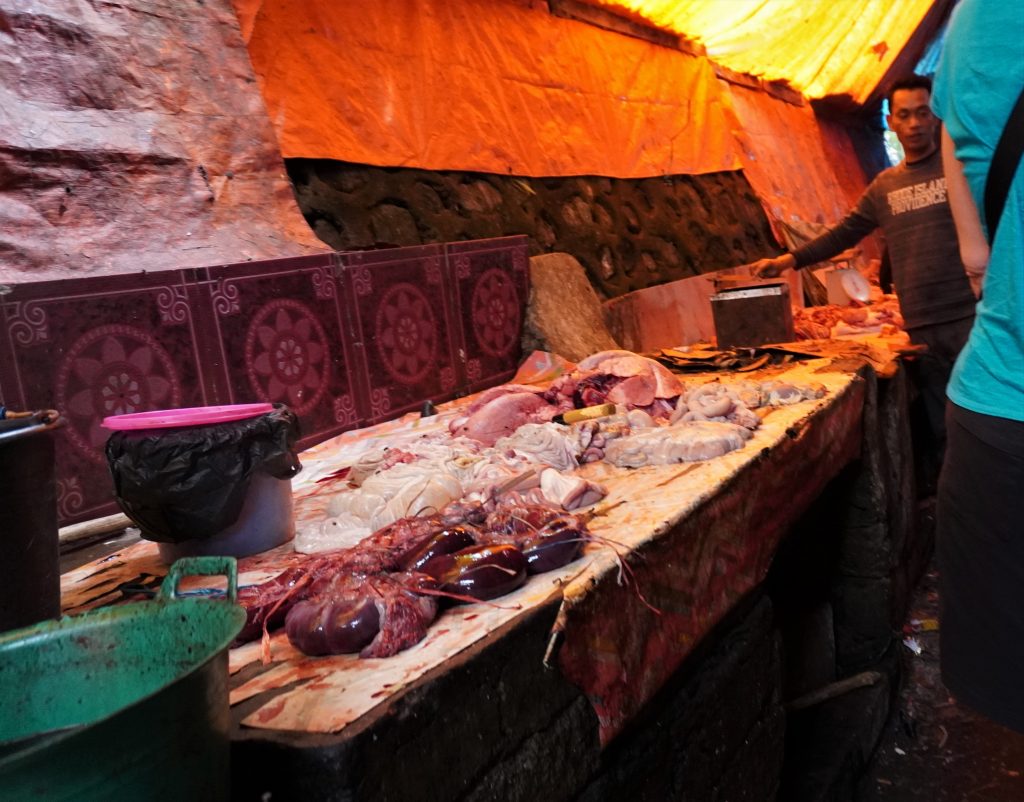
Portuguese missionaries arrived on Flores in the 16th century. One result is that most people on the island are Catholic. Therefore, unlike many other places in Indonesia that are majority Muslim, people on Flores eat pork. The pork sales in the Ruteng market are not for the faint of heart, given that there is no refrigeration and the wares are just lying uncovered on plywood tables.
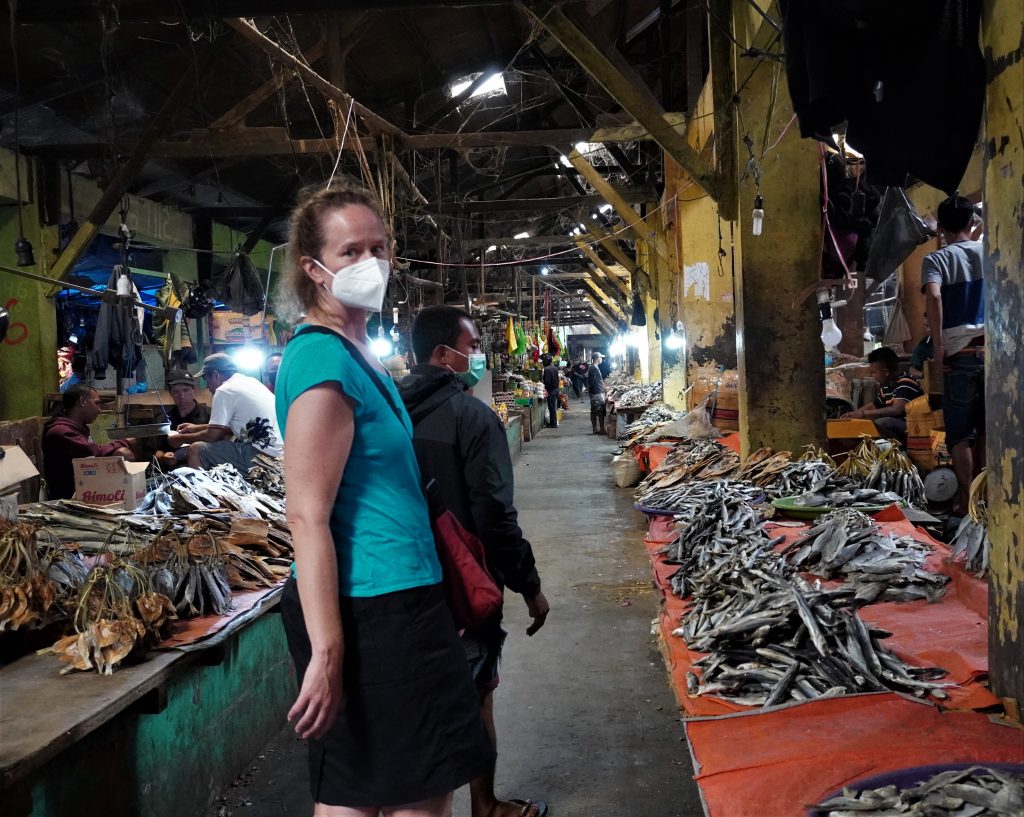
All Indonesians seem to use dried fish, so you can always find a healthy supply of it. It is a major ingredient in many varieties of sambal, and is also used in other dishes. In Ruteng, Aristo told us that some of the fish are special because they are only found here.
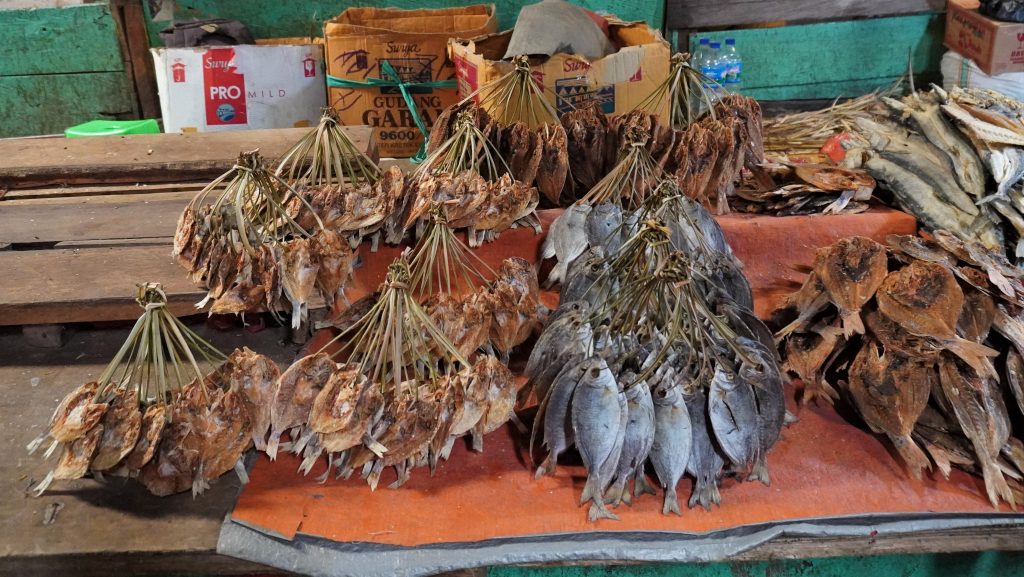
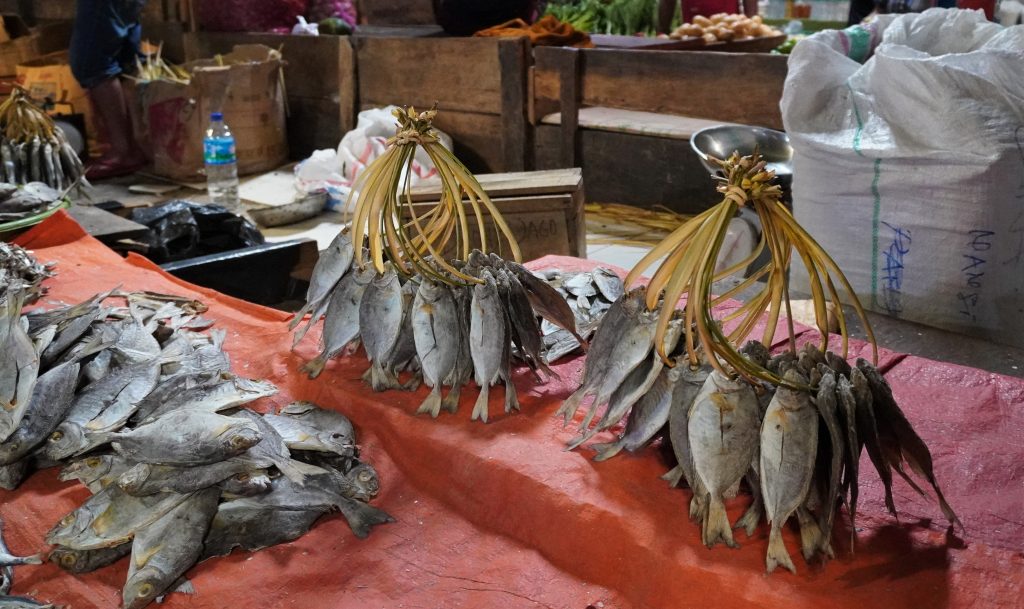
In addition to foods, you can also find various useful household items in the market. The scythes in the foreground of the photo below were the kind we saw people carrying all over Flores. There are so many rice paddies! The short scythe seems like it would be a good tool for that kind of agriculture.
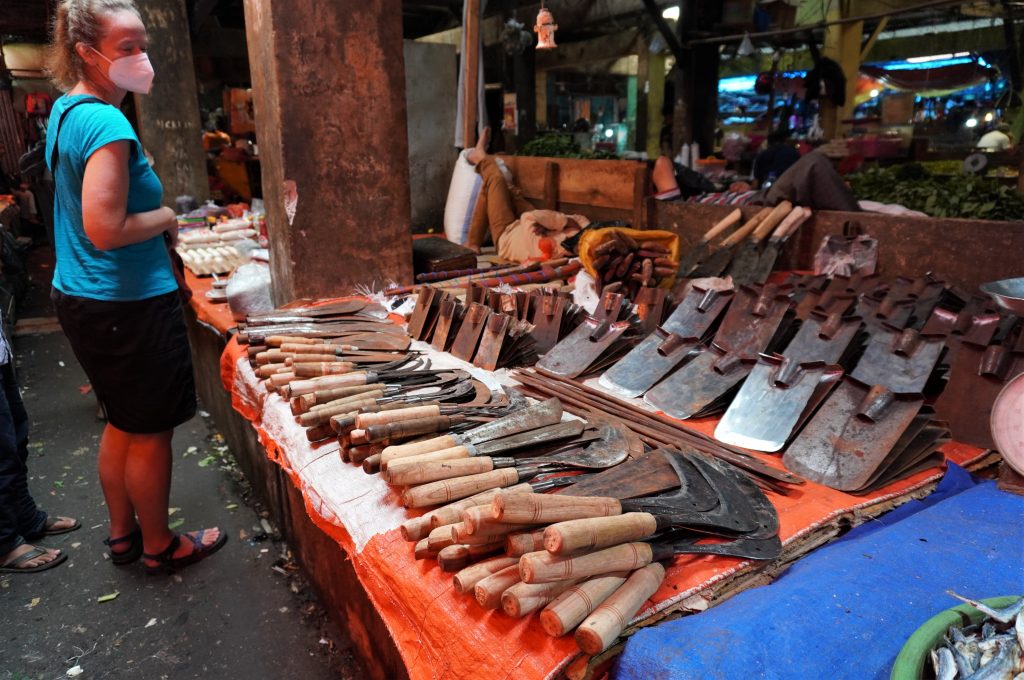
All in all, this quick market stop was a great way to see more of what regular people’s daily lives are like.